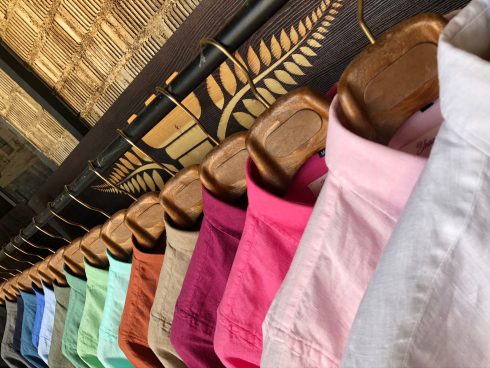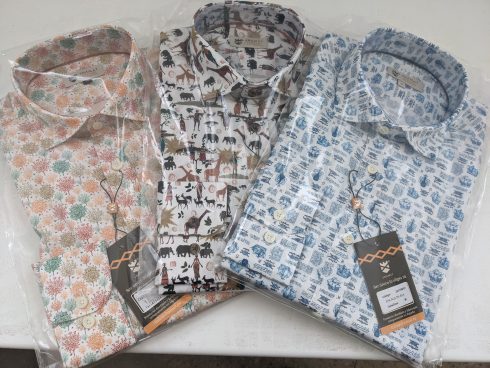FOR Juan Carlos Vera Garcia, business is part of his ‘DNA’.
His father owned the first ever industrial bakery in Teba, a small town near Ronda, followed by a successful clothes shop.
It was this venture that inspired Juan to become a representative for fashion brands, working in Barcelona.
Eventually, some eight years ago, he decided to start his own brand of menswear, known as Shamat.
READ MORE: How a British designer, 39, is turning olive oil waste from southern Spain into luxury clothing
Since then, the brand has flourished, sold alongside designers like Chanel and appearing on catwalks throughout Spain.
But when the pandemic hit, everything changed.
Once proud to carry the ‘Made in Spain’ label, all of Shamat’s local suppliers closed down, leaving them with two options: manufacture abroad, or open their own factory.
So, alongside his wife, Loli del Rio Corral, Juan moved back to Teba to ‘recover’ Malaga’s lost art of clothes production.
Some thirty years ago, the fashion industry was thriving in the province and Teba was particularly known for its leather production.
However, the rise of fast fashion skyrocketed demand and brands began to look for cheaper alternatives in China, India and beyond.
“We prioritised prices over our community,” said Juan.
“Often, the local population in Ronda is fighting for a job. Many have to leave to find work. We wanted to create job opportunities here, where they are disappearing.”

READ MORE: Ronda declared most romantic city in Spain by popular lifestyle & fashion magazine Hello!
Juan and Loli are currently training some 15 tailors in their factory, known as Macontex, from the nearby towns of Teba, Campillos and Sierra de Yegua.
Each member of staff will become an ‘expert’ in one phase of the sewing process, from creating buttonholes to ironing collars.
Belen Escalanate, from Teba, said: “If I didn’t have this job I’d have to work on the campo or leave to find work, it’s definitely provided job opportunities.
“I like working here, I enjoy sewing and everyday is different.”

After one and a half months of training, the workers will begin teaching the next generation of workers and Juan even has plans to go into schools and universities to encourage students to start their own brands.
Hopefully, this scheme will be supported by ‘Malaga de Moda’ a Junta scheme designed to support fashion businesses in the region which has already backed Macontex.
Each tailor is proud to work on the shirts, which Juan claims are an example of ‘perfect and optimal quality’.
Not just down to the tailor’s handiwork, Macontex is the ‘most technologically advanced’ factory in Andalucia thanks to its range of specialised machines.
This commitment to quality, says Juan, is part of their mission to provide sustainable clothing.
“Durable clothes are the most sustainable, not Shein and Primark,” he said.
“We have to change this throwaway mentality. There’s more ways to make money than over-producing and that’s by making better quality things that last longer.”

The company uses 100% linen for their line of shirts and trousers, believed to be one of the most durable materials.
The factory is also the only textile factory in Spain to comply with sustainability standards.
“There’s a lot of talk about sustainable fashion, lots of disinformation and lies. We’ve been sustainable since the start.
“We’re creating a sustainable economy and going back to the local.”
Even the brand’s some 400 designs are created in Teba by Juan, including whales, skulls and stamps.

“We’ve gone from nothing to growing little by little,” Juan beamed from the factory, whose head office is nearby Campillos.
“We’re very proud to have created something like this in a small town like Teba.”
Although the brand is already sold in shops throughout Spain, the couple will open their first ever dedicated shop in Ibiza next year.
In the future, the couple hope to launch a flagship store in the heart of their native Malaga, Calle Larios.

